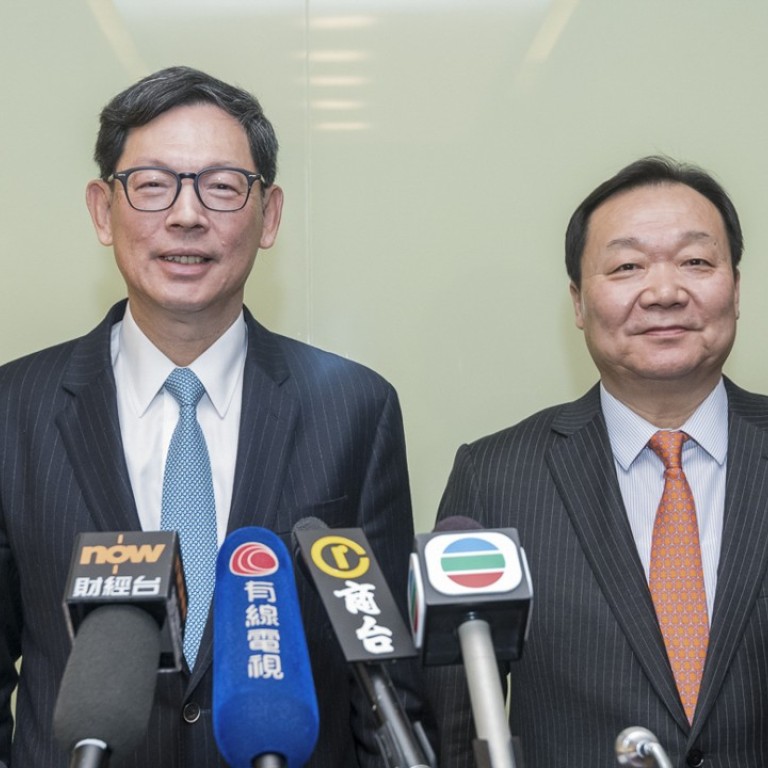
Hong Kong central bank chief eyes cooperation with mainland to support cross-border finance
Hong Kong’s de facto central bank will work with mainland regulators to implement measures to meet rising demand for cross-border financial services and stocks and bond trading, according to its chief executive.
The joint effort to facilitate cross-border transactions and trading of financial products will help economic integration between Hong Kong and its neighbouring cities, said Norman Chan Tak-lam, head of the Hong Kong Monetary Authority, during a visit to the capital.
“We will strengthen our cooperation with the People’s Bank of China and State Administration of Foreign Exchange to launch measures to make things easier for people crossing the border for work and leisure,” he told reporters. The associated transport and infrastructure requirements will create more demand for cross-border financial transactions, he said, adding: “We have not discussed specific details.”
He was responding to a query about whether he has exchanged ideas with his mainland counterparts on measures to make cross-border financial transactions easier for people living in the so-called Greater Bay Area.
The region comprises Hong Kong, Macau and seven cities neighbouring the Pearl River Delta in Guangdong province, where Beijing is pushing for greater economic integration.
“Many Hongkongers cross the border to have business meetings, shop and have holidays, as do our neighbours across the border in Hong Kong,” Chan said. “The demand for cross-border transactions and financial services will only increase as more and more regional transportation facilities and other infrastructure are built.
“Hong Kong has a geographical advantage for providing financial services in the area and we can consider doing trials on various measures.”
He was speaking after meeting senior mainland officials during the annual visit, in which he leads a delegation of representatives from the Hong Kong Association of Banks (HKAB).
Asked if the HKMA will implement measures to meet an expected rise in demand for offshore yuan in Hong Kong after global stock index compiler MSCI decided to include large-cap mainland traded A shares in the MSCI Emerging Markets Index from May next year, he said he saw no immediate need for action.
“We will observe the situation and act when it is necessary. Inclusion of A shares in the MSCI index will see overseas investors buy more of them, and regulators need to prepare for rising trading turnover and the need for liquidity management,” Chan said.
Cross-border trading of mainland A shares by Hong Kong and overseas investors and Hong Kong-listed shares by mainlanders are conducted via the Shanghai and Shenzhen Stock Connect schemes.
He described the gradual integration of the Hong Kong and mainland capital markets as a process, where “the bridge’s core structure has already been built … as to how wide the lanes are and how much traffic throughput there is, we should not be overly concerned if the initial volume is not as large as expected.”
He cited the example of the Shanghai Stock Connect, where daily turnover has been running at over HK$10 billion recently, much higher than the levels when it was first launched in 2014.
“We saw no settlement and currency convertibility problems even with the rise in turnover,” he said.
Meanwhile, HKAB chairman Yue Yi urged Hong Kong’s banks, which account for over 40 per cent of foreign banks’ assets, loans and profit in the mainland, to “sufficiently participate” to take advantage of Beijing’s recent relaxation of shareholding caps on Sino-foreign financial services joint ventures.

